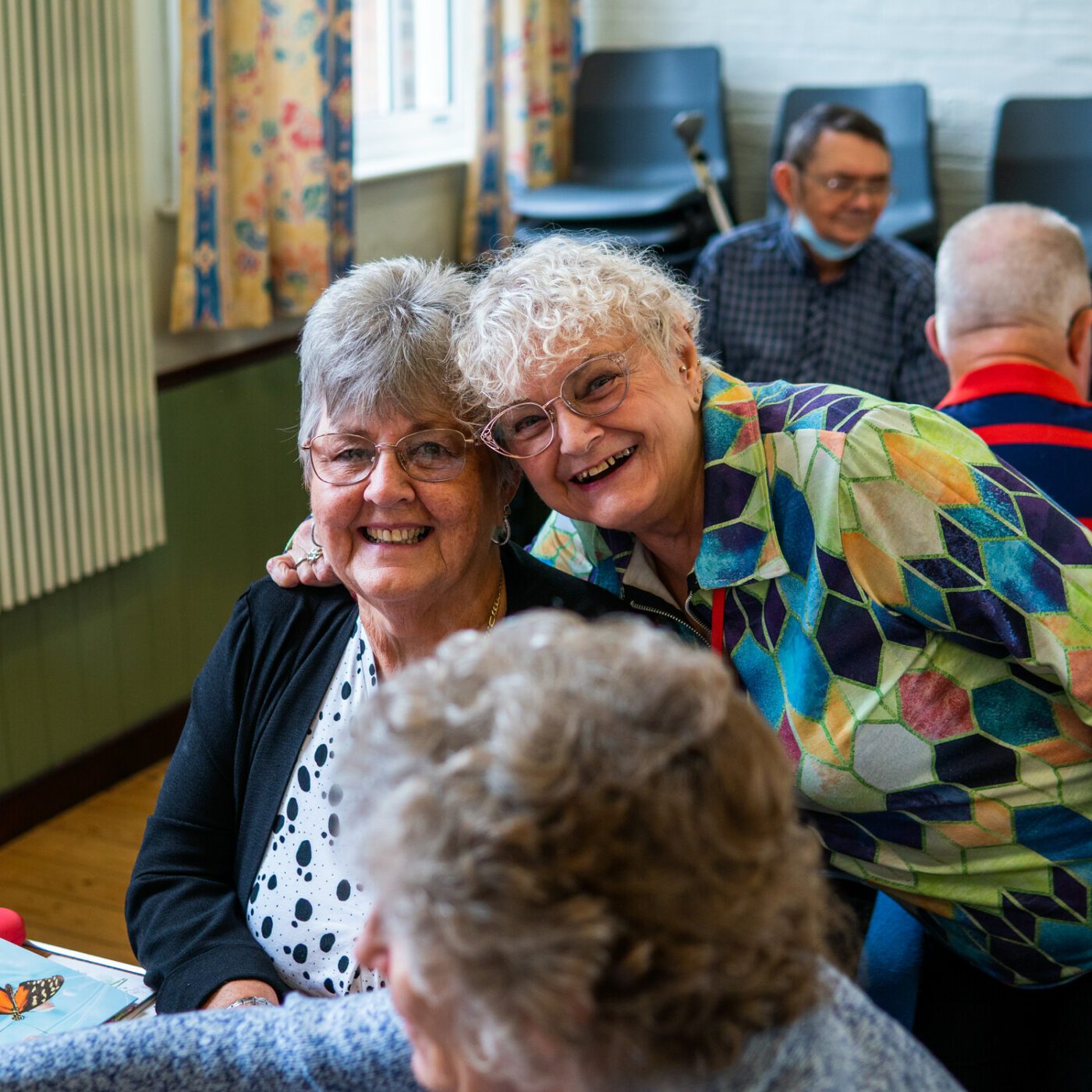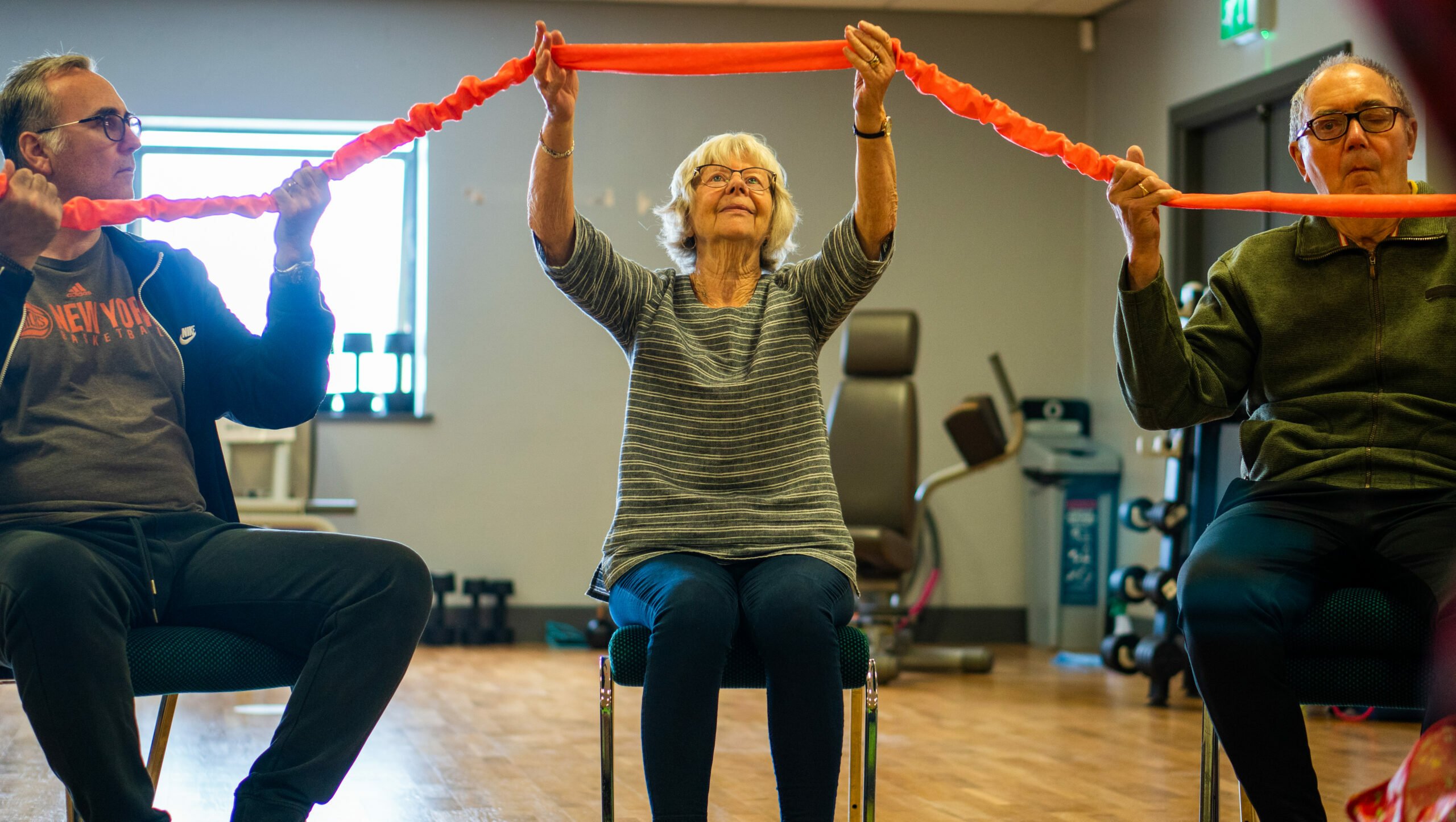How can home care help with learning disabilities?
Tags
Live-in care
Learning disabilities come in many different forms, and can impact their ability to live full, independent and happy lives. As a person gets older, home care may be a viable option to help them keep a familiar routine and stay connected to their community. On this page we’ve looked at leading guidance on how you can help and support an older person living with a learning disability.
Quick facts about learning disabilities
Two‑thirds of adults with learning disabilities live with their families. (NICE)
People with learning disabilities can become frail or experience a loss of cognitive capacity earlier than other people.
Dementia is more prevalent among those with a learning disability, some experts estimate the risk of dementia to be about four times higher.
One study found that 54% of people with a learning disability have also experienced mental health problems.
People with learning disabilities will often develop conditions associated with ageing e.g. a sensory impairment such as hearing loss at a younger age than the rest of the population, which may increase their need for social care.
Types of learning disabilities
According to Mencap – a UK charity for people with learning disabilities, learning disability can be defined as a reduced intellectual ability and difficulty with everyday activities. These activities can often include things like –
- keeping their home in order
- looking after themselves
- understanding complicated information
- learning new skills.
This can have a big impact on a person’s quality of life.
While a learning disability is a lifelong condition, with the right support many people can live fulfilling and independent lives. Of course, the type and level of support needed will differ depending on the person – someone with a mild learning disability may only need help occasionally – for example, they may need someone to go to the bank with them to ensure they take the right things, and know what to do once there. People with moderate learning disabilities may need some level of weekly support to help them look their best, or prepare healthy meals.
However, people with profound learning disabilities are likely to need full-time support with almost every aspect of their daily lives – from personal care and nutrition, to mobility and communication.
Supporting an older person with a learning disability
People with learning difficulties are living longer today than ever before. In fact, half of those living with a learning difficulty have the same life expectancy now as those without.
Growing older with any form of disability can present some unique challenges and things to think about though. So, we’ve looked at leading advice from experts including Mencap, the NHS, and the National Institute for Health and Care Excellence (NICE) and shared some key points to help you on your caregiving journey.
Keeping up with regular health checks
It’s important for everyone to recognise the early signs of age related illnesses, however a person living with a learning disability may need some help to do so. You may need to help them manage their GP, dentist, or optician check ups by adding them to your own calendar or offering to accompany them.
People with learning disabilities should also be offered an annual health check with their GP to help find and sort out any health problems as early as possible. You can find out more about what happens during an annual health check here.
It’s really important that someone with a learning disability understands what’s going on and what needs to happen next if they are diagnosed with a condition or illness. We’ve covered some of the guidance NICE has created to help with this below.
Remembering things
Sometimes it can be tricky to process and remember information, especially if it’s been given verbally, for example over the phone or during an appointment. If you’re supporting an older loved one it’s important to be patient and willing to say the same things more than once. You may wish to help by leaving notes and lists in obvious places around the home, or break information down and share it over a prolonged period, to give them a better chance of remembering.
Protecting and respecting their routine
For certain types of learning disabilities or related conditions, maintaining a familiar and comfortable routine is really important. For example, while autism isn’t a learning disability, Around half of people living with autism are likely to also have a learning disability. Autistic people can find daily life chaotic, unpredictable and difficult to navigate. A clear routine with set times for activities, favoured routes for getting to and from places, and daily rituals can help them to find order in their day to day.
For those who aren’t living with autistic spectrum conditions, structure can still be a big comfort and also help them maintain positive habits such as washing and cooking healthy meals. Supporting and sticking to a loved one’s routine may also help them feel more confident when it comes to knowing what to expect, what to do, and how the people around them will act. For example, if they go to the post office every Monday, they’ll likely know which member of staff will be there, how they’ll greet them, and the questions they’ll ask.
Facilitating hobbies and staying social
Recreational activities and friendships are hugely important to an older person with a learning disability, however according to Mencap, they’ll often have fewer chances to take part in them or socialise with others.
Being physically present isn’t always enough, people need to feel as though they’re really integrating with their community and building meaningful relationships. We know that later life can already put people at risk of loneliness due to poor health, bereavement and family members moving away, but living with a disability can make the world even smaller. As a caregiver there are some things you can do to help a loved one build their social skills and take part in meaningful activities, such as –
- ask them what activities they’d like to do, and look for local, accessible options together. Their local council website, a nearby community centre , or the NHS can be a good place to start.
- offer to drive them or accompany them to activities or social clubs
- ask them if they’d like to take part in the Gateway Award which can help with confidence and friendship building
Helping with communication
A wide range of factors may make communication challenging for someone with a learning disability. Avoiding jargon and long words, as well as figurative language or idioms that they may take literally can be a good place to start.
You may find using tools or visual resources helpful too – such as pictures, or a special tablet computer that uses large clear text. Whatever communication strategies you try, make sure you settle on something that helps your loved one to easy express themselves.
If you’re a full-time caregiver to a loved one, you may find this free course from The Open University useful. It may help you understand certain behaviours, and how to access or deliver the best care. Find out more here.

Supporting a person with learning difficulties and dementia
People with learning disabilities, particularly Down’s syndrome, are at increased risk of developing dementia. Dementia can make daily life increasingly challenging, however a learning disability can create additional challenges. According to the Alzheimer’s Society the condition may progress quicker due to later diagnosis and poorer management of existing health conditions. This makes regular health check ups incredibly important.
As well as the advice above, dementia may make consistency in the people who care for them, where they live, and what they do more important too, as it may help reduce confusion or distress.
Dementia support – providing effective care to those with more complex needs
MacIntyre is a national charity that has been supporting people with learning disabilities for over 50 years. We talked to Director of Adult Services Emma Killick about the importance of healthcare organisations and charities working together, rather than in specialist silos, to improve diagnosis and support for those living with learning disabilities and dementia.
The benefits of in-home care
Lots of people thrive in familiar surroundings, close to family and friends, and people with learning disabilities are no different – they may just need a little extra support to maintain an independent lifestyle.
As every person with a learning disability is unique, there is no ‘one size fits all’ solution to managing their day-to-day routines.
Some people may be able to live independently the majority of the time, with some occasional support form family, friends, or the voluntary sector. This may mean getting support with certain everyday tasks like going to the shops, cleaning and laundry, or getting to church or social clubs.
For more regular or long-term support at home, professional domiciliary care may be more suitable. You can arrange for just a few hours of care each week from a visiting carer, or 24 hour care from a live-in carer. Over time, and especially if supported by one dedicated carer, they can become a friend, confidante, and enabler, allowing the individual to live their life as independent as possible.
What tasks can a professional caregiver assist with?
A professional home care can support with a wide range of daily tasks. A carer with experience caring for learning disabilities will have specialist skills for communication, promoting independence, and enhancing people’s everyday lives. Care should always be person-centred care – i.e based around the unique needs of the individual. This may include helping with things like –
- personal care – assisting or prompting washing, grooming, and dressing appropriately
- continence support – getting to the toilet, using pads, and staying clean
- preparing and cooking nutritious meals, avoiding convenience foods or negative food habits
- arranging and attending medical appointments
- managing post and bills
- getting out and about safely
- avoiding door to door or phone scams
- collecting prescriptions
- shopping – making and following a list, navigating large stores, and carrying heavy bags
- keeping up with hobbies
- seeing friends or making new ones at social events
- keeping active and going on outings
- looking after pets
- providing round the clock peace of mind to families, and sharing regular updates on progress and key moments
- communication – finding easy read or understandable formats for important information, and helping a person feel listened to and understood
- friendly companionship

How do you empower adults with learning disabilities when it comes to care?
When arranging some form of formal support or care, involve your loved one as much as you can and if they have capacity to do so under the Mental Capacity Act 2005, then it’s really important that you find out their views about care and encourage them to take part in the decision-making process.
The National Institute for Health and Care Excellence (NICE) have published the following guidelines to help protect the rights of people with learning disabilities, ensuring they are listened to, and that they can access the services they want.
Below is just some of these recommendations they’ve made to health professionals and social workers. If you’re not offered what you need the below, don’t be afraid to ask for it or refer to NICE’s guidelines.
- The support of a speech and language therapist
- An independent interpreter to attend important appointments
- The opportunity to discuss how a person prefers to communicate and receive information before appointments
- Extended appointments to create more time for effective communication
- Signposting to relevant advocacy services
- Information in accessible formats, for example easy read documents, audio, or subtitled videos
- Providing tailored information on –
- the range of health and social care services available
- how to access this range of services
- thinking about and planning for the future
How to access home care services
If your loved one has been fairly independent up until their later years, they may not yet have completed a care needs assessment with their local council. This assessment is crucial to accessing support services for people with complex care needs. An assessor will look at key parts of your loved one’s daily life, such as their social life and support network, physical health, and how safe they are at home. This will help them work out whether they could benefit from some level of professional care.
Once your loved one has passed the initial assessment into their needs, they’ll also complete a financial assessment. This is to work out whether they can afford to cover the costs of their care alone, or if they’re entitled to some financial help.
Learn more about live-in care
Take a look at more Elder guides on the benefits of live-in care.


